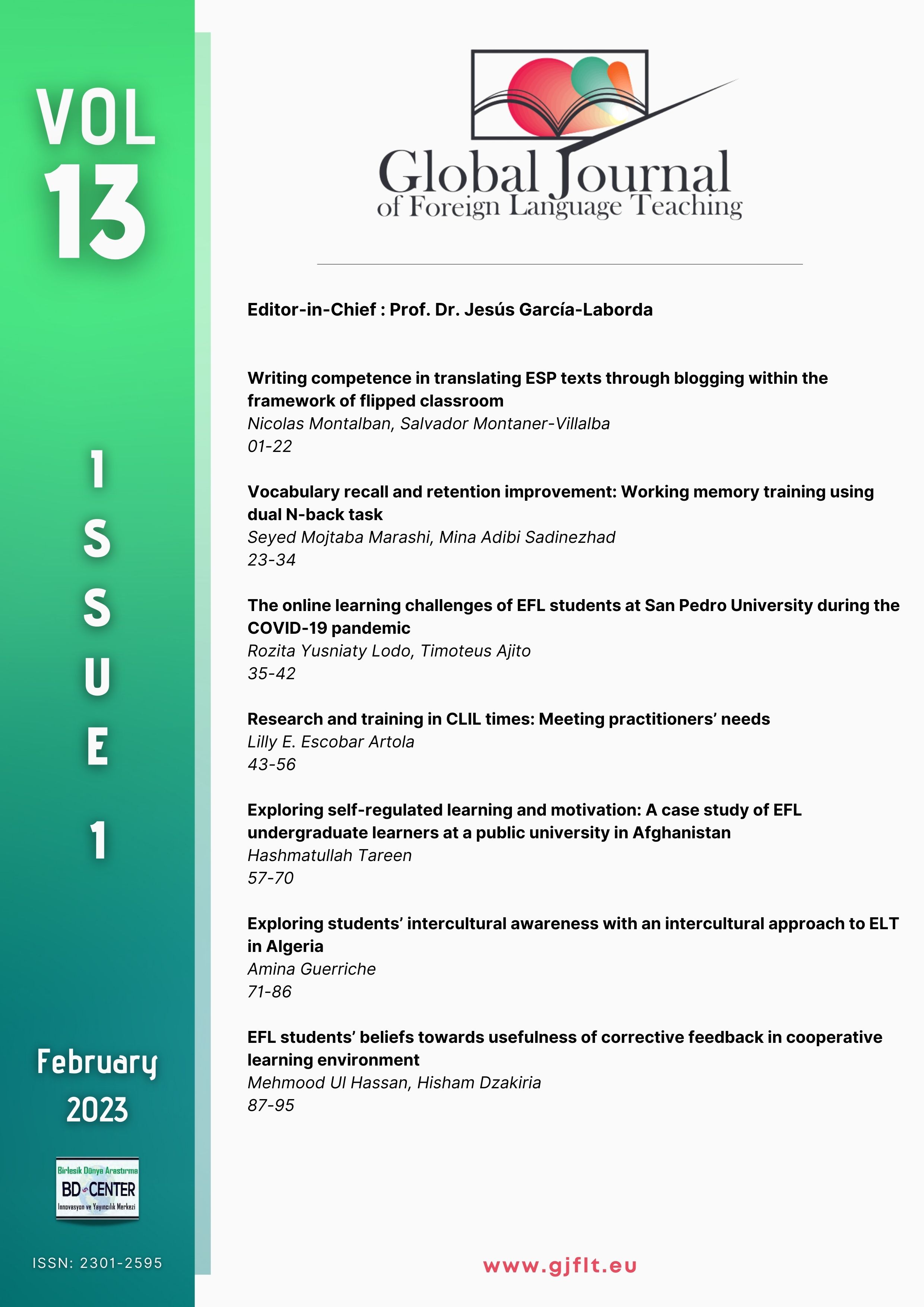EFL students’ beliefs towards usefulness of corrective feedback in cooperative learning environment
Main Article Content
Abstract
The current study aimed to find out English as a foreign language (EFL) students’ beliefs about the usefulness of corrective feedback in a cooperative learning (CL) environment. This study was qualitative research in which a narrative approach was used. This study emphasises each student’s learning experiences with CL strategy. The data were collected using interview questions as a research instrument. The researchers had a close observation, prepared notes, and made a record of interview responses from each student to explore and understand their beliefs towards corrective feedback (CF) provided by the instructors in the CL environment. The findings of this qualitative study revealed that EFL teachers were motivated to give a suitable CL environment to second language learners which made the provided CF more effective. The results indicate that EFL learners realised that they can find solutions to their problems through CL.
Keywords: Cooperative learning, corrective feedback, English as a foreign language, perceptions
Downloads
Article Details

This work is licensed under a Creative Commons Attribution-NonCommercial-NoDerivatives 4.0 International License.
Authors who publish with this journal agree to the following terms:- Authors retain copyright and grant the journal right of first publication with the work simultaneously licensed under a Creative Commons Attribution License that allows others to share the work with an acknowledgement of the work's authorship and initial publication in this journal.
- Authors are able to enter into separate, additional contractual arrangements for the non-exclusive distribution of the journal's published version of the work (e.g., post it to an institutional repository or publish it in a book), with an acknowledgement of its initial publication in this journal.
- Authors are permitted and encouraged to post their work online (e.g., in institutional repositories or on their website) prior to and during the submission process, as it can lead to productive exchanges, as well as earlier and greater citation of published work (SeeThe Effect of Open Access).
